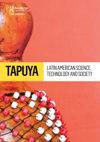Territories of data: ontological divergences in the growth of data infrastructure
IF 1.2
Q2 HISTORY & PHILOSOPHY OF SCIENCE
Tapuya: Latin American Science, Technology and Society
Pub Date : 2022-04-11
DOI:10.1080/25729861.2022.2035936
引用次数: 8
Abstract
ABSTRACT The construction of astronomical observatories in the Atacama Desert has prompted different actors in Chile to envision initiatives for promoting the expansion of data infrastructure. While such projects are usually seen as synonymous with development, Lickan Antay Indigenous activists affected by the construction of an observatory consider this situation the beginning of a new chapter in their history of territorial struggle. Building upon political ontology, this article argues that the growth of data infrastructures can underpin ontological divergences concerning the territory, i.e. what territory is and its relation with other entities. To do so, it compares two divergent ontologies of territory emerging in the Chilean context. While the Natural Laboratories policy and the Datagonia project transform the territory into a source of economic resources affording opportunities for developing data infrastructure (assetized ontology of territory), Lickan Antay activists conceive of territory as a unitary whole made up by human and other-than-human interdependencies (relational ontology of territory). Based on a discursive-material analysis of interviews and documents, this article delves into the ontological dimension of data colonialism and proposes an infrastructural regime that does not reproduce terricide and is aligned with the flourishing of multiple worlds.数据领域:数据基础设施增长中的本体论分歧
在阿塔卡马沙漠建设天文台促使智利的不同参与者设想促进数据基础设施扩展的举措。虽然这些项目通常被视为发展的同义词,但受天文台建设影响的利肯安塔伊土著活动家认为,这种情况是他们领土斗争历史新篇章的开始。在政治本体论的基础上,本文认为数据基础设施的增长可以支持关于领土的本体论分歧,即领土是什么以及它与其他实体的关系。为了做到这一点,它比较了智利背景下出现的两种不同的领土本体。虽然自然实验室政策和Datagonia项目将领土转变为经济资源的来源,为发展数据基础设施(领土的资产化本体)提供了机会,但Lickan Antay活动家认为领土是由人类和非人类相互依赖关系组成的统一整体(领土的关系本体)。基于对访谈和文件的话语材料分析,本文深入探讨了数据殖民主义的本体论维度,并提出了一种不会再现杀戮的基础设施制度,并与多元世界的繁荣保持一致。
本文章由计算机程序翻译,如有差异,请以英文原文为准。
求助全文
约1分钟内获得全文
求助全文
来源期刊

Tapuya: Latin American Science, Technology and Society
Social Sciences-Social Sciences (all)
CiteScore
1.60
自引率
0.00%
发文量
39
审稿时长
19 weeks
 求助内容:
求助内容: 应助结果提醒方式:
应助结果提醒方式:


